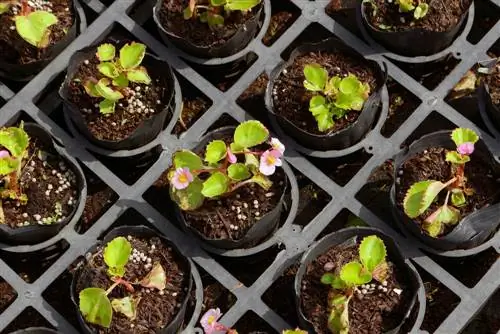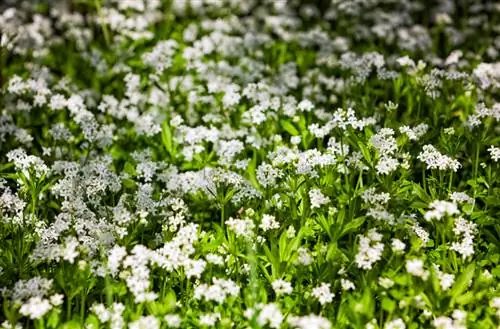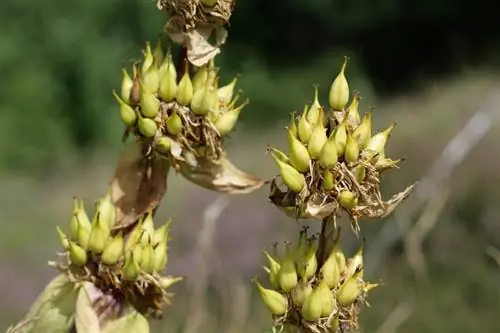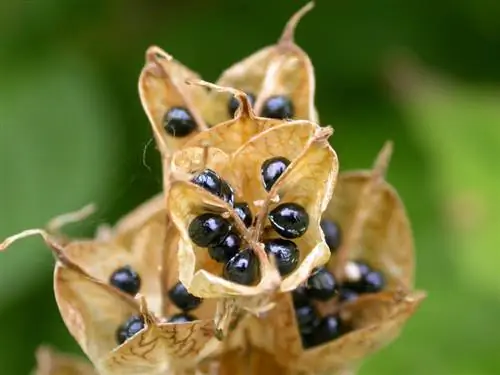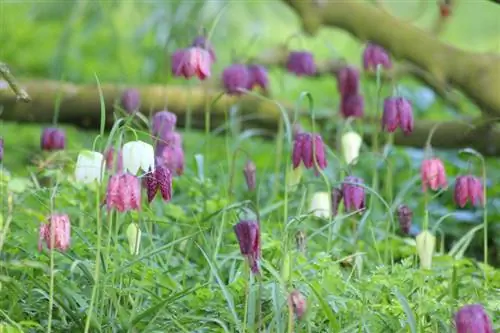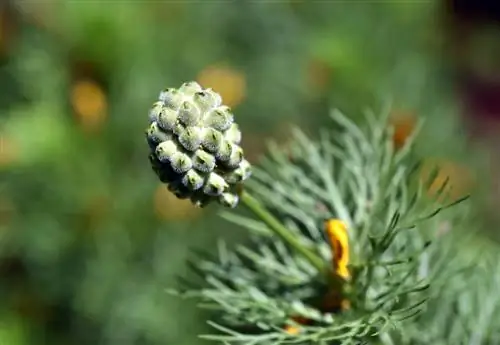- Author admin leonars@hobbygardeners.com.
- Public 2023-12-16 16:46.
- Last modified 2025-01-23 11:22.
Many garden owners and hobby gardeners like to grow their young plants themselves for the new gardening season. This is also possible with ice begonias. However, there are a few things you should keep in mind when sowing so that your efforts are crowned with success.
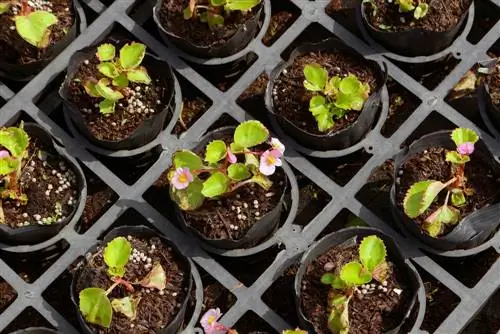
How do I grow ice begonias from seeds?
To grow ice begonias from seeds, you need germinable seeds from specialist retailers, as common hybrids are sterile. The seeds are sown on moist growing substrate without a cover, as they germinate in the light. The germination period is 30-60 days at a temperature of 22-24°C.
Where can I get germinable seeds?
In principle, you can use the seeds of your own ice begonias for propagation, but only if they are not hybrids. They are infertile. Hybrids often produce seeds, but they are not capable of germinating. You'll be on the safe side if you get seeds from specialist retailers (€4.00 on Amazon), whether locally or online.
What do I have to consider when sowing?
The seeds of ice begonias germinate in the light and are also very small. If you buy pelleted seeds, sowing or distributing the seeds will be a little easier. In order for the seeds to actually germinate, they must not be covered with soil; they need a lot of light for this process. Therefore, only press the seeds lightly onto the substrate.
The germination period is also very long, around 30 to 60 days. So you need a lot of patience until you can plant your ice begonias in the garden. However, that's not a big deal, because ice begonias are not hardy and can only be planted after the ice saints anyway.
Sowing step by step
Distribute the seeds evenly on moist growing substrate and press the seeds lightly. Then place the cultivation container in a bright and warm place and always keep the substrate evenly moist. Covering with a glass plate or transparent film can help you create optimal germination conditions.
The most important things in brief:
- Sowing possible, but not all species are fertile
- Light germinator
- best sowing time: January to March
- Germination temperature: approx. 22 °C to 24 °C
- Germination time: approx. 30 to 60 days
- Prick out with about three to four leaves
Tip
For reliable germination, you should get seeds from specialist retailers; the hybrids that are often sold are not fertile and their seeds are therefore not capable of germinating.

